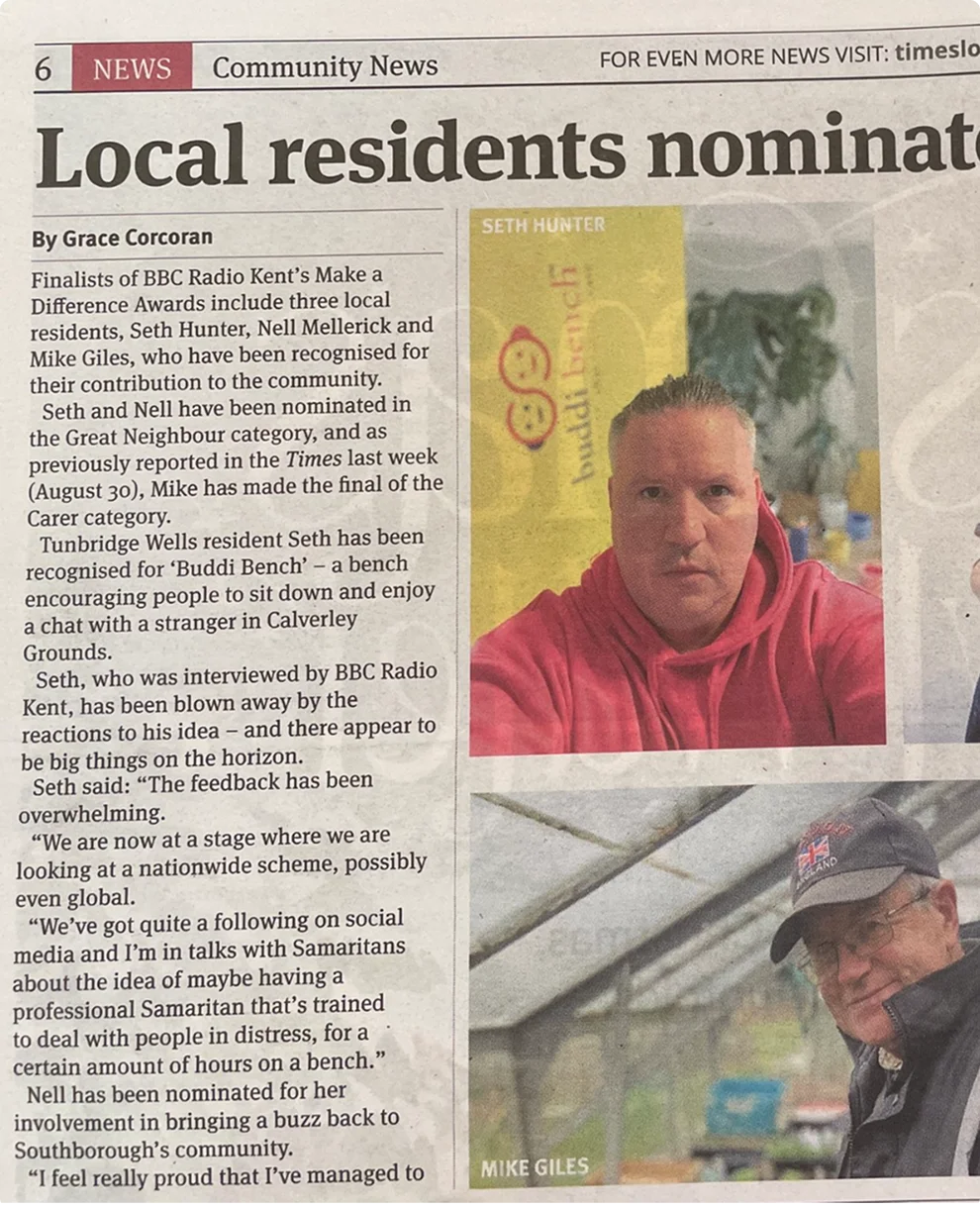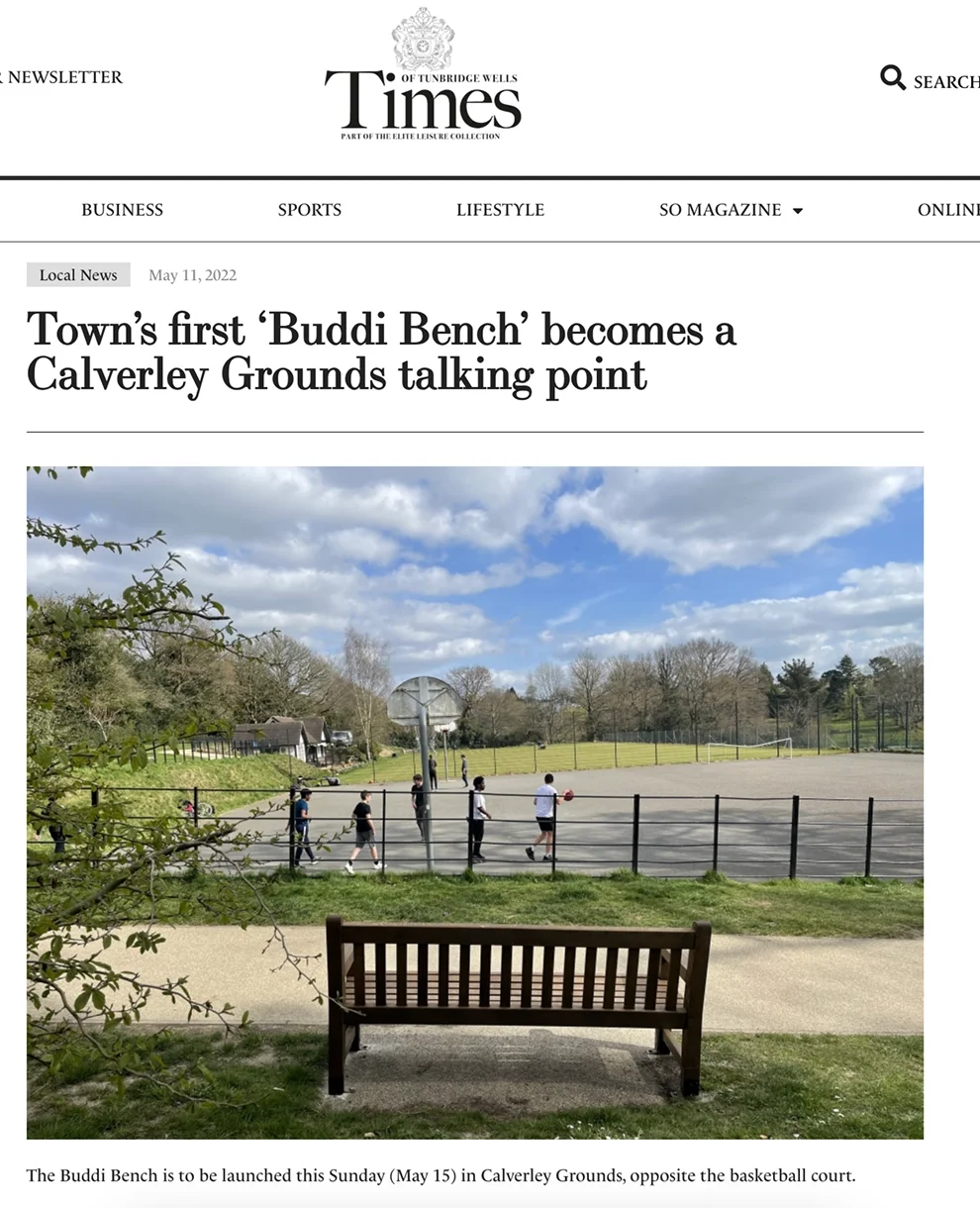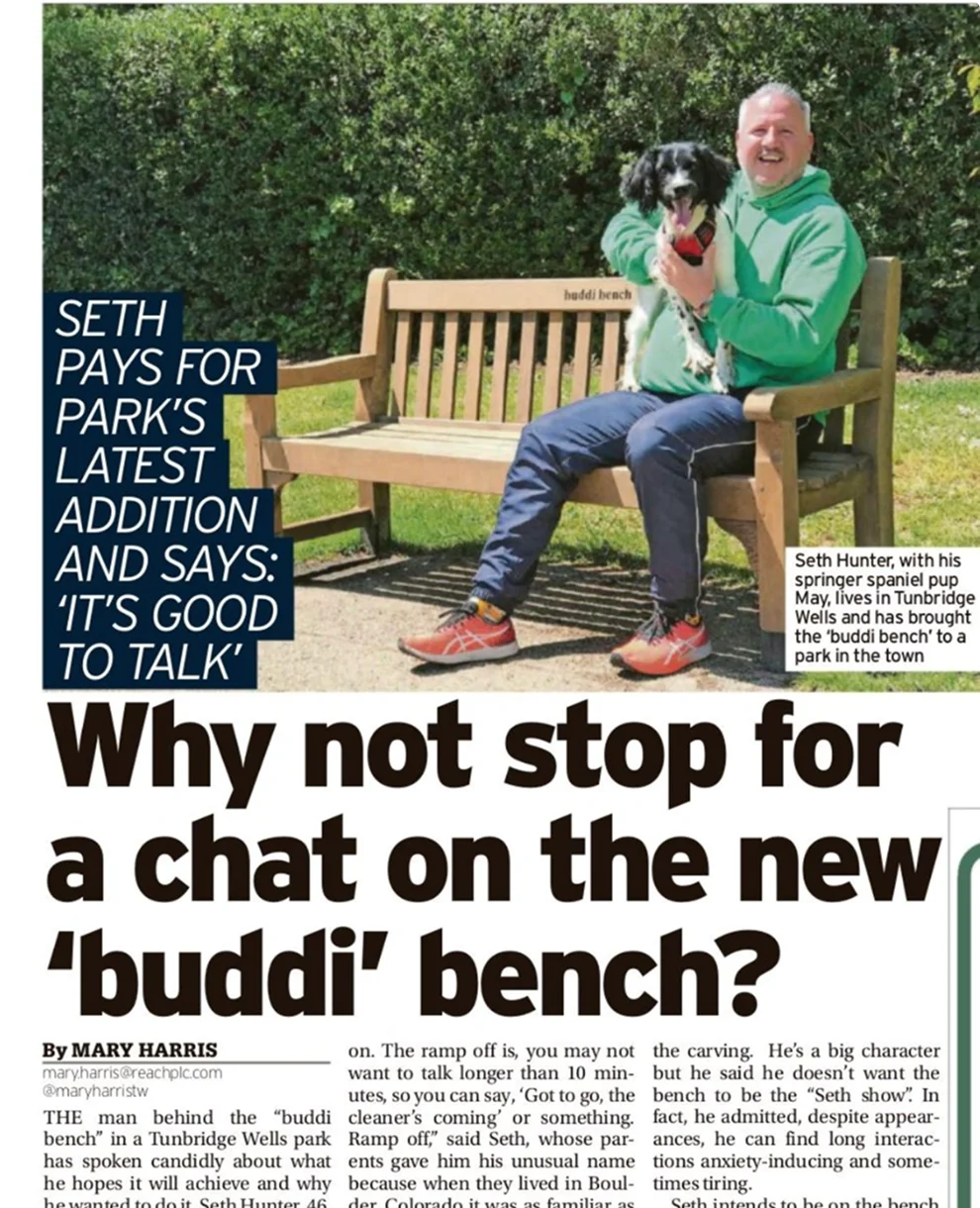We’re Making Headlines

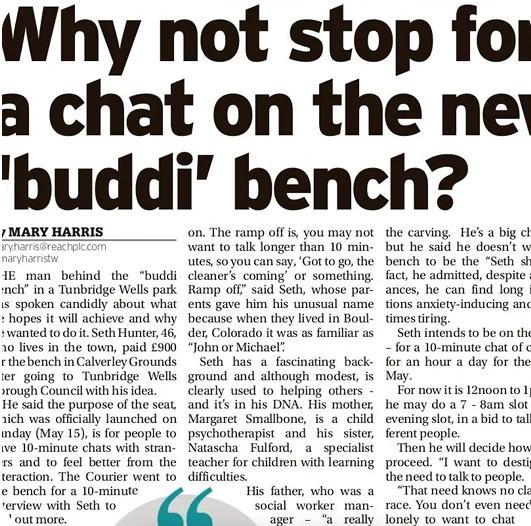
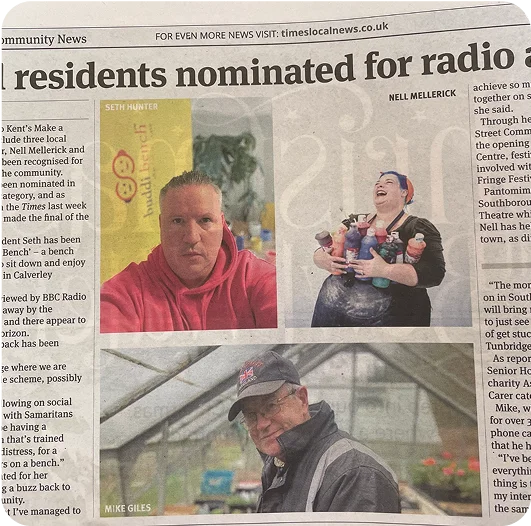

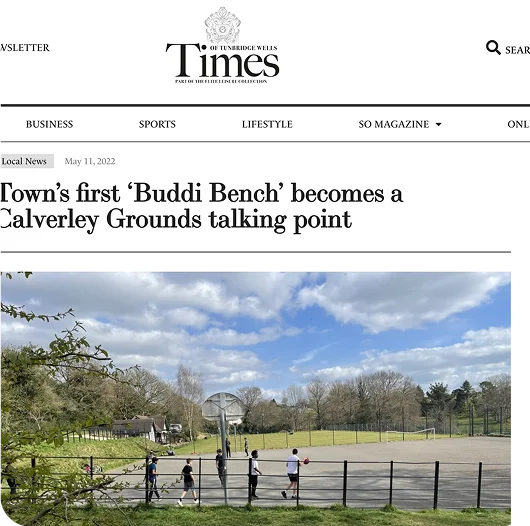


BBC Radio Kent Interview









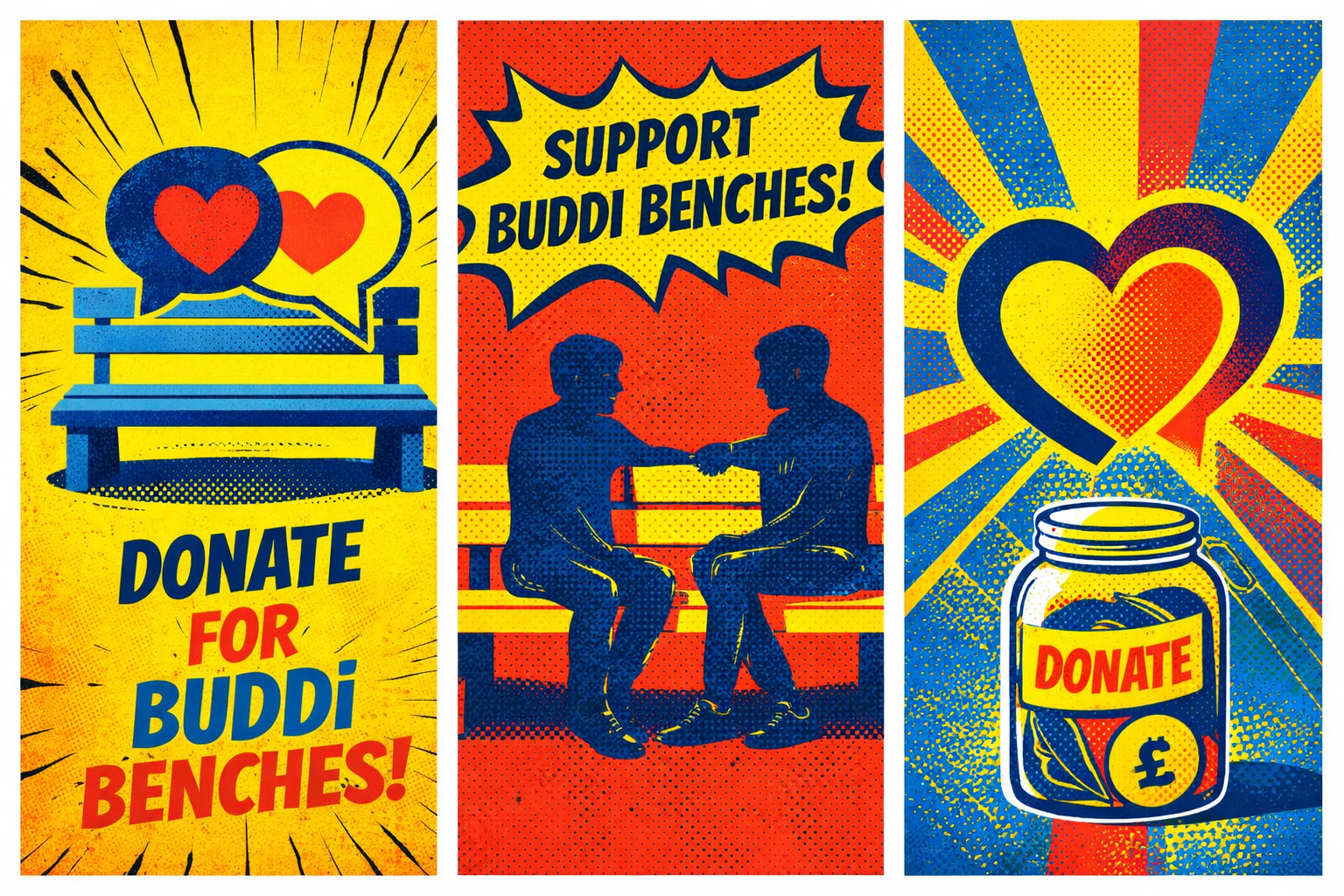
Tired of seeing division amongst us all in the news & on social media?
Me too!
Part of the solution are initiatives like buddi bench.
And now...
buddi bench Arrives in Edinburgh Just in Time for Christmas!
I’m delighted to announce that I’ve secured another spot for a buddi bench in the heart of Edinburgh, UK.
I’m spending this weekend before xmas standing by our new bench and explaining how this scheme works, while handing out flyers about this new resource.
Already there is keen local interest in this initiative and we’re being talked about in the media:
Short of time? Highlights from the article published in Edinburgh magazine:
“AT A TIME WHEN SO MANY PEOPLE FEEL DISCONNECTED, A SMALL FRIENDLY CHAT CAN MAKE A SURPRISINGLY BIG DIFFERENCE,” SAYS FOUNDER & CEO SETH HUNTER.
“EDINBURGH IS A WARM AND SPIRITED CITY, AND THE WELLINGTON STATUE LOCATION GIVES PEOPLE A NATURAL PAUSE POINT TO REST, MEET SOMEONE NEW, AND FEEL A BIT LESS ALONE.”
A Simple Idea at a Time When It Matters Most
Across the UK, loneliness is on the rise — and Edinburgh is no exception. The buddi bench offers an uplifting, creative, and accessible response. No apps, no sign-ups, no requirements: just a beautifully designed bench and an open invitation to talk."
This beautiful bench costs just £3,000 all-in so let’s join forces and try and meet this target by giving us a donation via our website homepage or simply click this go fund me link below:
Consider this a gift to those at Christmas that might be lonely and would love to chat | connect | care with kind strangers.
Thanks Buddies! x
Creative responses to human distress
chat | connect | care

Here's an exciting opportunity for you.
Two days ago I officially registered a new not-for-profit Umbrella organisation called: buddi Creatives Community Interest Company. This means we are registered legally as a not-for-profit and that we are professionalising our work. There are LOTs of exciting developments bubbling away but this is an email for another time.
As loyal supporters of our work I wanted to give you the first opportunity to join our organisation as a non-executive Director/Board member.
Below is the officially blurb. If you'd like to find out more then simply email me:
seth@buddibench.org
Our work is gaining real traction and thriving and this is an opportunity for you to be part of this movement as offer even more: Creative Responses to Human Distress.
Do also check out of new, funky website which should give you more ideas as to why we offer much more than just buddi benches.
Here's the Ad:
📣 We’re Recruiting Non-Executive Directors
buddi Creatives Community Interest Company (CIC) (Umbrella Not-for-Profit Organisation including buddi bench Ltd & virtuallyseth.ai)
buddi Creatives CIC is growing — fast. Our mission is simple and ambitious:
To reduce loneliness, strengthen human connection, and bring compassion back into public life.
We offer: Creative Responses to Human Distress.
We’re particularly focused on supporting those with mental health challenges or are seeking recovery from addiction issues.
Through our buddi benches (now in Tunbridge Wells, London and soon Edinburgh), community initiatives, creative wellbeing projects, events, digital resources, and our innovative AI companion virtuallyseth.ai, we’re building friendly, accessible spaces where people talk, connect and feel less alone.
We are now seeking Non-Executive Directors to join our Board and help shape the next chapter of this rapidly expanding social-impact organisation.
✨ The Role
As a Non-Executive Director, you will provide thoughtful guidance, strategic oversight, and supportive challenge to help ensure strong governance, ethical practice, and mission-focused growth.
You’ll work closely with our Founder & CEO, Seth Hunter, contributing to:
• Strategic direction and long-term planning
• Development of new benches, programmes, and partnerships
• Oversight of governance, compliance, and CIC responsibilities
• Financial stewardship and sustainability
• Community engagement and public benefit
- Ensuring that everything we do advances our mission: Creative responses to human distress
Time commitment: 2 - 4 hours per month, including a monthly Zoom meeting and light engagement via our Directors’ WhatsApp group chat and responding to occasional calls and emails.
The role is voluntary.
🌱 What We’re Looking For
We welcome expressions of interest from people who are:
• Compassionate, reliable, and values-driven
• Thoughtful communicators who enjoy collaboration
• Committed to reducing loneliness and improving wellbeing
• Able to provide strategic insight and supportive challenge
• Guided by integrity, respect, and good governance
Helpful (not essential) experience may include:
Governance, finance, fundraising, mental health, addiction recovery, social care, digital content, community engagement, events, partnerships or charity/CIC leadership.
Above all: a warm heart and clear head.
💛 Why Join Us?
This is a chance to help shape a unique social impact organisation with national and international potential - to join us at ground level. You will play a meaningful role in:
• Reducing loneliness across the UK & beyond
• Expanding a network of conversation-friendly benches
• Supporting creative community-based wellbeing work
• Developing innovative resources and events
• Helping people feel seen, heard, and connected
Small acts of kindness can change lives — and your leadership can help bring this mission to thousands more.
📨 How to Apply
To express interest or request an informal chat, please message Seth Hunter directly here on LinkedIn or email:
seth@buddibench.org
We would love to speak with you.
https://buddibench.org

What have cute puppies got to do with me (Seth!) & buddi bench?
Puppies were THE inspiration behind the setting up of buddi bench!
Yes really.
Walking my puppy called “May” (short for “Mayhem”!) I found that kind strangers would stop & chat. They would make a fuss of May & talk about the weather with me!
I was amazed to realise that just a few short daily chats with friendly strangers radically improved my mood. More effective than any anti-depressant I’d tried.
The chats were brief and not particularly profound - yet left me feeling great.
I felt like I’d stumbled across a powerful antidote to low mood & isolation and wanted to share this simple solution towards much of human distress.
buddi bench brings you the wonders of short chats while caring for a puppy without the commitment of dog ownership & avoiding the demands of daily walks!
buddi bench facilitates friendly chats amongst adult strangers (using a unique bench rather than a puppy as a conversation starter) as a simple yet powerful way to build individual and collective resilience.
We replace a sense of isolation with one of connection. This is a crucial part of the antidote to human distress.
To see what else I & buddi bench offer you do check out my new funky website!
"Creative responses to human distress”
Support me & buddi bench via subscribing to my socials:
msha.ke/buddibench
(if on a mobile device - otherwise subscribe via the socials on the bottom of my website)
Thanks buddies.
Seth x
#PuppyPower #ChatConnectCare #BuddiBench #CreativeResponsesToHumanDistress

Seth has something special for you this week.
Seth & buddi bench offer you much more than benches in parks to encourage connection & compassion between adult strangers.
We offer: "Creative responses to human distress" including:
Live Events; Newsletter/Blog; YouTube Channel/Podcasts/Animation; AI chat; 1-on-1 support for mental health and addiction recovery; Art, Fashion and Merch.
Seth is particularly fond of animations so he decided to write and direct his very own debut animation. The script is below and the animation can be watched by clicking the link at the bottom of this post which takes you to Seth's YouTube Channel.
Hope you enjoy this WWOW! (Weekly Words Of Wisdom!) #02 of #52.
Here's the script Seth wrote:
From Adversity to Inspiration - Animation Script - by Seth Hunter for buddi bench
Do you ever struggle to live well? I do too. Life’s adversities are inescapable - as Shakespeare’s Hamlet put it, we all face “the slings and arrows of outrageous fortune.” Similarly, the Buddhists teach that “life is suffering” unless met with skilful guidance.
Paradoxically, accepting these truths can make us more content. We don’t have to like what we can’t control - only focus on what we can. It’s tempting to compare ourselves to others (compare and despair), but even the most outwardly successful people carry pain and shame. It's a cognitive distortion to compare others’ outsides with our insides. Many of us hide our vulnerabilities, denying what Carl Jung called the “shadow side” - the subconscious parts of ourselves we reject and often project onto others.
Unhappy childhoods are a common lament. As Philip Larkin wrote:
"They fu%k you up, your mum and dad. They may not mean to, but they do... ... But they were fu%ked up in their turn..."
Parents, often struggling with their own wounds, pass on unresolved trauma. Pain that is not transcended is often transmitted. Hurt people hurt people.
For years, I resented my challenges - a suicidal father, trauma, addiction, and bipolar disorder. I sometimes pitied myself until a friend suggested that I, “turn shite into manure.” At first, I bristled, but she explained: pain is inevitable; misery is optional. I may not be responsible for my distress, but I am responsible for my healing and recovery. We can transform adversity into inspiration and beauty.
Therapy embraces this idea. It tells us: go to your wounds; therein lies your genius. Psychological pain signals the need for attention, just like physical pain. We instinctively recoil from a hot flame to avoid burning ourselves - our emotional distress serves a similar purpose. The pain is not the problem, it points to the solution. It invites us to uncover, discover, and discard what no longer serves us. By confronting our struggles, we grow into our true selves, gaining depth and grace.
Life is like driving a car. Focus on the road ahead (stay in the now), check the rear-view mirror (look back but don’t stare), and mind our blind spots (acknowledge the limits of our perception). If we dwell too much on the past (ruminate on old injuries and resentments), obsess about the future ("future-tripping"), or fixate on the unknowable and uncontrollable (lose focus on our own sphere of influence), we risk crashing. Balance is key. As Kierkegaard reminds us:
"Life can only be understood backwards but must be lived forwards."
Let’s not suppress or resent our pain. Instead, let’s seek to understand it with compassion and let it guide us toward becoming our authentic selves. As Nietzsche said:
"One must still have chaos in oneself to give birth to a dancing star."
We are all made of stardust - let’s sparkle like the celestial beings we are!
Link to watch Seth’s Animation on his YouTube Channel: From Adversity to Inspiration
Please share the above link on your socials - sharing is caring!
Subscribe easily to Seth’s YouTube Channel
https://www.youtube.com/@buddi-bench?sub_confirmation=1
To see all that we offer at buddi bench be sure to check-out Seth's new website:
Thanks buddies!
Seth x
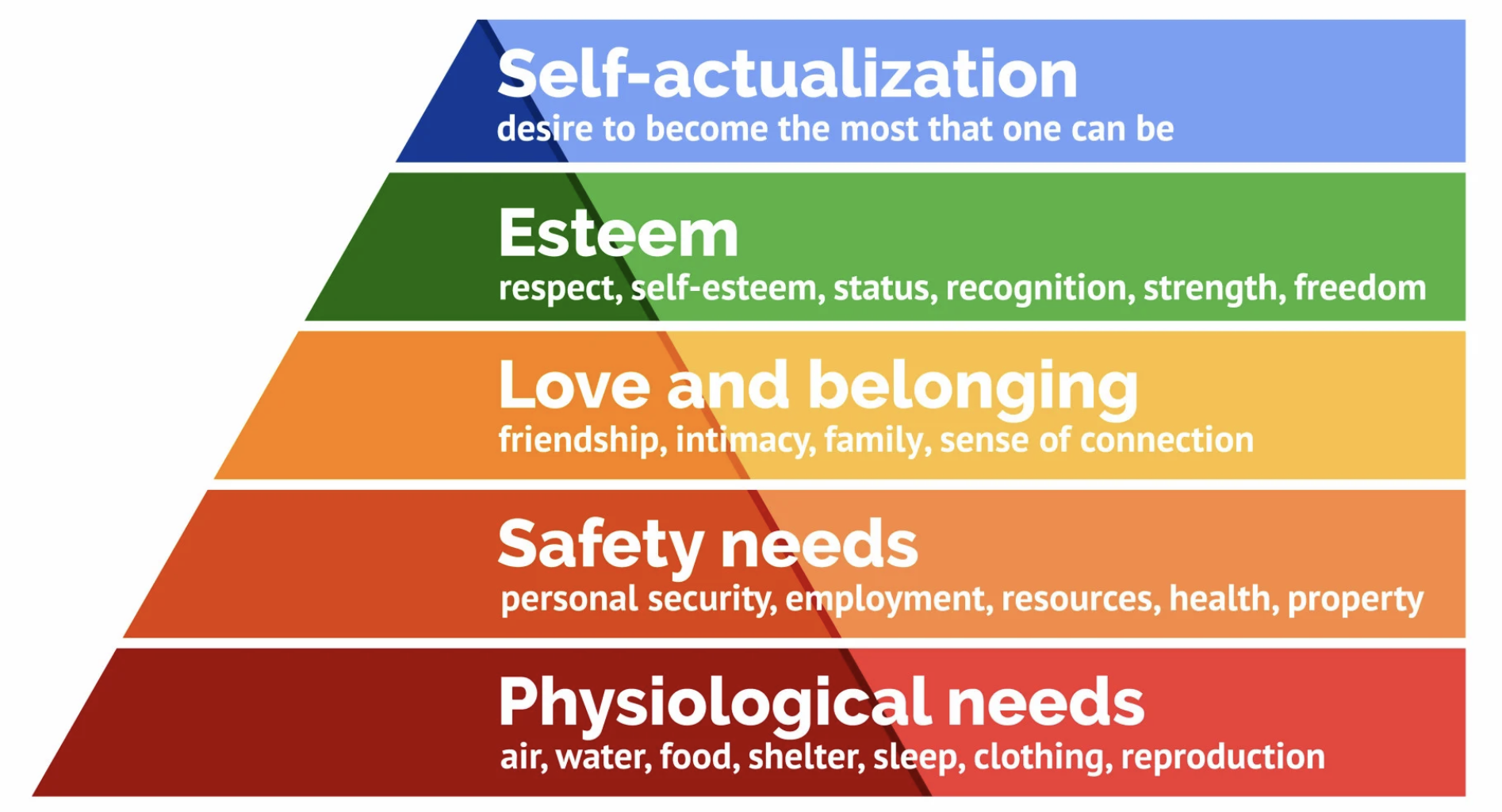
'I think everybody should get rich and famous and do everything they ever dreamed of so they can see that it's not the answer.'
- Jim Carey
“Shame your mind, don't shine like your possessions do.”
Faithless lyric from the song “I Want More”
“Wealth consists not in having great possessions, but in having few wants.”
- Epictetus
Ever found yourself earning money by doing a job you hate, to buy things you don’t need, to impress people you don’t like? Seduced by mere hedonic immediate gratification masquerading as need?
Me too.
What to do about the gravitation pull of materialism?
* Before I get a little “philosophical & intellectual” it seems wise to contextualise this musing on materialism. I’m very aware that in the UK & beyond many of us struggle to pay our rent or bills and not everyone gets to eat 3 meals a day (I regularly run out of money). This mini-essay is not about trying to make the unacceptable acceptable. When 2 parents both in full-time employment need the support of food-banks to survive, this suggests that the way things are shared amongst ourselves is perverse and broken. Feeding and clothing ourselves and keeping the lights is genuine need not want or an unhealthy relationship with material possessions.
This musing of mine is me “thinking out loud” about my own struggles with delineating between my wants and needs. I don’t wish to have an opinion about others’ relationships with the material world. Arguably most research is “me-search”. I too love shiny things. I simply hope that sharing some of my ideas not only helps me but might be of benefit to you too. If not, no harm done. Live and let live.
So what do I need to not just survive but to thrive?
Maslow’s Hierarchy of Needs is a psychological theory proposed by Abraham Maslow that suggests human motivation is driven by a progression of needs, arranged in a pyramid structure from the most basic to the most advanced. At the base are physiological needs—such as food, water, shelter, and rest—followed by safety needs like security and stability. Once these are met, individuals focus on love and belonging, seeking relationships, connection, and community, and then esteem needs, including self-respect, recognition, and achievement. At the top is self-actualisation, the pursuit of personal growth, creativity, and fulfilment of one’s potential. Maslow argued that higher-level needs become a priority only after lower-level ones are reasonably satisfied, highlighting a natural progression toward psychological well-being and self-development. The key idea is we need to have the base of the pyramid in place until we can really excel and find contentment.
Assuming that my needs are generally catered for what about my wants?
Having lots of lovely stuff so nearly scratches the itch of want doesn’t it? It’s hard not to obsess over something that so nearly works.
The problem is I can never get enough of what I don’t really need.
A funnier man than I made the observation that trying to get satisfaction from the material world is like taping sandwiches to your legs as a way to satiate your hunger.
I love a bit of Greek Philosophy and my favourite chap is Diogenes.
Diogenes was almost the archetype of anti-materialism — not just in theory, but in a way that was deliberately shocking to his contemporaries. His entire life was a protest against the belief that possessions, wealth, or social status were necessary for a good life.
Radical Simplicity
Diogenes owned almost nothing — just a cloak (he folded it so that it could double as bedding), a staff, and a small bag. He chose to live in a large storage jar in the marketplace of Athens. He famously discarded his drinking cup after watching a boy drink water from the hollow of his hands, saying that he was not aware until that moment that "nature had already provided him with a cup.”
Freedom Through Detachment
For Diogenes, possessions were not just physical burdens but also emotional chains. By needing almost nothing, he became immune to bribery, flattery, or fear of loss. The fewer things you depend on, the less control others have over you.
Rejecting Social Status as a False Measure
He mocked the pursuit of luxury and the people who equated wealth with worth. When Alexander the Great visited him and offered to grant any wish, Diogenes famously asked that he only wanted that Alexander: “Stand out of my sunlight.” Diogenes suggested that true worth comes from inner self-sufficiency, not from pleasing the powerful or owning more.
Living According to Nature
Diogenes believed most human misery came from living in artificial conformity to social expectations, including those around wealth. He sought a life guided by natural needs — food, shelter, companionship — without the excesses of luxury. Aligning life with genuine human needs cuts through the illusions that fuel materialism.
Public Provocation as a Mirror
Diogenes often behaved in ways society found outrageous — eating in the marketplace (and other socially unacceptable things!), sleeping in a barrel, even mocking rich citizens to their faces. These provocations were meant to expose the absurdity of conventional values, especially the obsession with wealth. Sometimes it takes bold, uncomfortable truths to wake us from the dream of materialism.
Diogenes teaches that materialism enslaves not only through the effort of acquiring possessions but through the fear of losing them. Radical independence can be achieved through reducing needs to the essentials — brings a kind of freedom and dignity that wealth can never buy. His life asks me to consider whether our possessions serve me, or whether I have become their servant?
Arguably Diogenes took the idea of not needing things to an extreme.
Let’s turn to the buddhists who specialise in seeking “the middle way”.
- Please note: Other religions are available! :)
The Buddha did not advocate extreme poverty or extreme indulgence, but a balanced life free from the compulsive pursuit of wealth. Buddhism approaches materialism as a symptom of attachment — one of the core causes of human suffering according to the Four Noble Truths. Rather than condemning wealth outright, Buddhist teaching focuses on how clinging to possessions, status, or sensory pleasures binds the mind to a cycle of craving and dissatisfaction.
Buddhists suggest all physical possessions are impermanent. Clinging to them is like holding on to water — eventually, it slips away. A case in point: you never really own an umbrella. You buy one and call it “mine”. But it is only a matter of time until you leave it on a bus or a train. You only ever really borrow possessions. The more we depend on impermanent things for our identity or happiness, the more we set ourselves up for disappointment.
Giving freely is considered an antidote to materialism by Buddhists. By practicing generosity without expectation of return, the grip of craving is loosened, and compassion is strengthened. Material possessions are not inherently wrong, but the attachment, craving, and identification with them create suffering. Freedom comes from understanding impermanence, loosening clinging, practicing generosity, and living with mindful balance — finding contentment in the present rather than chasing fulfilment through acquisition.
So what has writing this diatribe taught me?
Much of what I think I “need” is actually “want in disguise” and optional; simplicity can be liberating. Not that wanting per-se is bad, this isn’t about judging myself or anyone else. But it is helpful to recognise that much of what I want isn’t that good for me and probably won’t solve the issues I think it will. Once my needs are met, I rarely fix my internal discomfort via changing my external circumstances.
I’ve also reminded myself to avoid extremes. Diogenes rocks and really makes me think but I don’t need to give everything away and go live in a cave to be content. I’m aware of my own tendencies towards extremes and the ideals proposed by buddhist philosophy sensitises me to the wisdom in moderation plus what might be unhealthy attachments. Sometimes when my mind insists that I turn left or right, tries to convince me that my options are binary, there may be a third option, a way through via the middle way.
My final takeaway?
The less I need, the richer I am.
Like to read more like this? To encourage Seth (me!) to write more please share on your socials plus sign-up to Seth’s newsletter via our website.
buddi bench™
Creative responses to human distress
Socials (from a mobile device): https://msha.ke/buddibench

Here at buddi bench we offer: "Creative responses to human distress".
We give you much more than friendship benches in your local parks.
We believe that a key antidote to human distress is creativity and connection.
Indeed, we take fun seriously.
So enjoy this short series of Seth morphing into freaky characters. Seth had a lot of fun creating these and hopes that they serve to remind us to make time to be silly and playful as part of our self-care.
Freaky Seth Compilation Short Vids x 4
* Please note that some of these vids are a little unnerving so do consider carefully if you are ok with being a little shocked.
If you'd like to help Seth offer you more free creations to inspire personal and collective resilience then please subscribe to Seth's YouTube Channel in one-click:
https://www.youtube.com/@buddi-bench?sub_confirmation=1
Freaky Seth Compilation Short Vids no. 01 of 04
https://youtube.com/shorts/zFt8DOu22G8?feature=share
Freaky Seth Compilation Short Vids no. 02 of 04
https://youtube.com/shorts/kEqxdraU1zg?feature=share
Freaky Seth Compilation Short Vids no. 03 of 04
https://youtube.com/shorts/1BfcZrra_cY?feature=share
Freaky Seth Compilation Short Vids no. 04 of 04
https://youtube.com/shorts/zbBjYV7SicI?feature=share
Remember that sharing is caring so do share these vids on your socials.
Thanks buddies.
Seth x
#FreakySeth #WeTakeFunSeriously #BuddiBench

WWOW!

Seth

